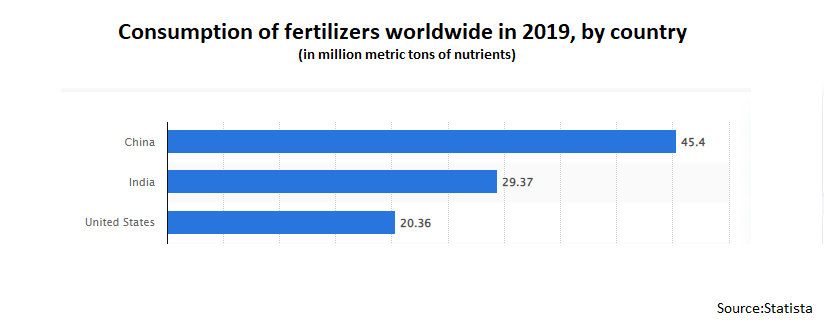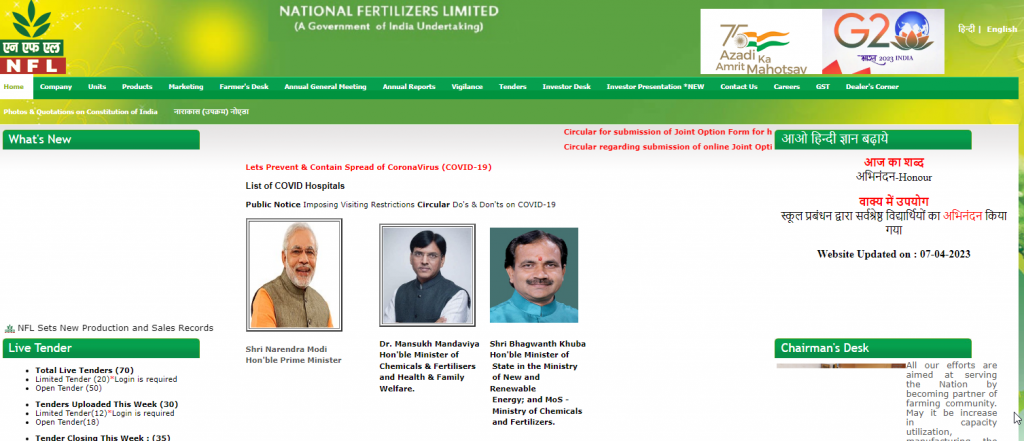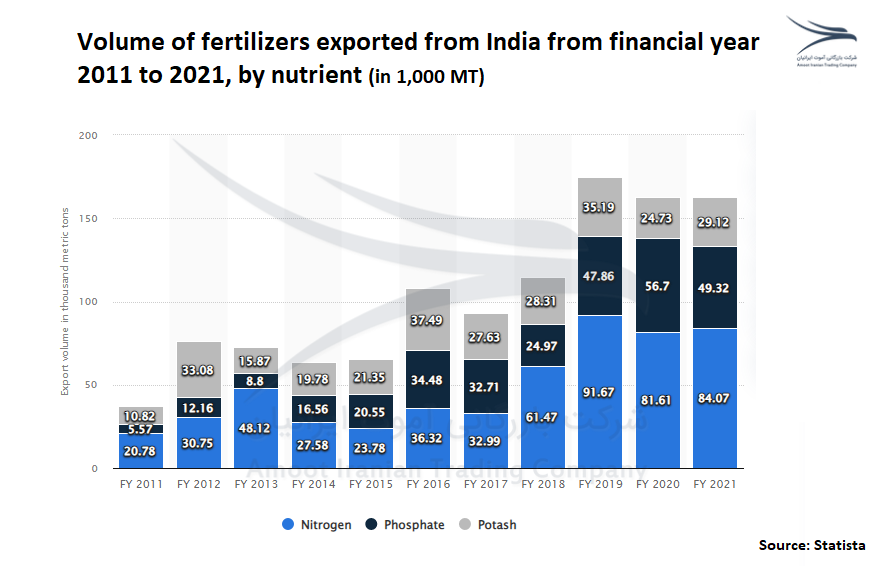.
India’s fertilizer industry is significant due to it being the second-largest consumer of fertilizers in the world. That is the reason that though India is a powerful fertilizer exporter, still the amount of fertilizers that India imports is more than India’s exported fertilizers.
.

.
Feeding the Masses: How India’s Fertilizer Industry is Critical to Food Security and Economic Growth
Due to the rapid increase in population, the demand for food is expected to rise significantly in the next years in India.
However, as urbanization levels increase, the amount of available arable land is expected to decrease. The use of fertilizers is anticipated to play a crucial role in increasing agricultural yields per hectare.
India is predominantly an agrarian country with many small and marginal farmers who often face issues of low productivity and poor quality.
Crops in many regions rely on rainwater and are cultivated on the same land repeatedly, leading to a decline in soil fertility.
To combat this issue, there has been an increase in the use of nitrogen fertilizers in the country.
.

.
The Indian government has implemented economic reforms and ensured that fertilizers are available at reasonable prices to enhance productivity.
The government provides subsidies on certain fertilizers, which has helped improve food security in the country.
Although agriculture heavily relies on fertilizers, the government has been able to meet almost all of the demand for chemical fertilizers.
.
India’s Fertilizer Industry: Meeting the Nation’s Agricultural Needs and Leading on the Global Stage
Due to its vast population of over 1 billion people, India requires a significant amount of fertilizer production to feed its population, which has led to the country becoming a major player in the fertilizer industry.
.

.
The Indian fertilizer market was valued at INR 898.5 Billion in 2022!
Currently, India has:
- 32 large-scale urea plants
- 19 units producing DAP and complex fertilizers
- 2 units producing Ammonium Sulphate
India is:
- the 2nd largest consumer of urea fertilizers
- ranks 2nd in the production of nitrogenous fertilizers
- ranks 3rd in phosphatic fertilizers
.
India’s Fertilizer Consumption: Meeting the Needs of a Growing Population
India is one of the world’s largest consumers of fertilizers, and there has been a continuous growth in domestic sales.
.
It is worth mentioning that:
- NPK fertilizers are the most commonly used type of fertilizers in India
- Urea is the most highly consumed fertilizer in India
.

As you can see above, China holds the title for being the world’s largest consumer of fertilizers, having consumed over 45 million metric tons worth of nutrients in 2019.
India and the United States follow China in terms of consumption, with 29.4 and 20.4 million tons, respectively.
.
India consumes a large amount of fertilizers due to its large population and heavy reliance on agriculture to support the economy.
With limited arable land and unpredictable weather conditions, the use of fertilizers has become essential to maintain soil fertility and increase crop yields, which in turn helps to meet the country’s food demands.
Additionally, the government has implemented policies and subsidies to ensure that fertilizers are readily available and affordable for farmers, further contributing to their widespread use.
.
India’s Fertilizer Production
From 2017 to 2021, the total production of fertilizers in India was 414.85 LMT.
In the fiscal year 2019to 2021, the total fertilizer production increased by more than 11.40% year-on-year, reaching 462.15 LMT.
This growth was facilitated by favorable policies that encouraged investment in the public, cooperative, and private sectors, resulting in a significant increase in fertilizer production in the country.
.
The Largest Producers of Fertilizers in India
| 1 | Indian Farmers Fertilizer Cooperative Limited (IFFCO) |  | The biggest manufacturer and marketer of fertilizers in India, which is a multi-state cooperative society headquartered in the country’s capital. |
| 2 | National Fertilizers Limited |  | A state-owned corporation that has an annual installed capacity of over three million metric tons, making it one of the largest producers of urea in India. . It has a share of approximately 15% of the total urea production in the country. |
| 3 | Coromandel International Limited |  | The top producer of phosphatic fertilizers in India, with a production of around 2.8 million metric tons during the financial year 2021. . In addition to phosphatic fertilizers, the company also manufactures various other fertilizers, pesticides, etc. |
.
.

.
.

.
.

.
India’s Fertilizer Import: More Than Export!
Despite domestic production of fertilizer in India, the consumption of fertilizer is higher than the volume produced domestically.
Therefore, India has become one of the big importers of fertilizer. The quantity of fertilizer imports in India is much higher than its exports.
India’s fertilizer imports were valued at over 500 billion Indian rupees during the fiscal year 2020.
.

.
Many of Amoot Iranian Trading Company’s urea buyers are from India. They are interested in both granular and prilled forms of Iran and Turkmenistan urea, both of which are supplied by Amoot Company at the highest quality and the lowest price.
.

.
From Farm to Fertilizer: India’s Role in Feeding the World
As you can see in the picture below, during the fiscal year 2021, India exported more than 84,000 metric tons of nitrogenous fertilizers, 49.32 thousand metric tons of phosphate fertilizers, and 29.12 thousand metric tons of potash.
.

.
India has a significant presence in the global market for fertilizer exports, as it exported large quantities of nitrogenous, phosphate, and potash fertilizers in the fiscal year 2021.
However, despite its strength in fertilizer exports, India still imports more fertilizers than it exports.
